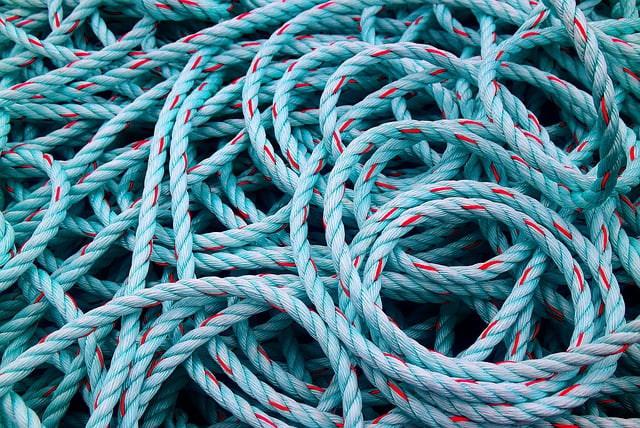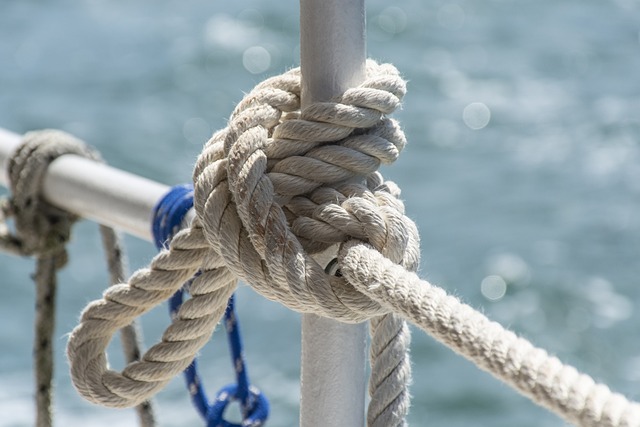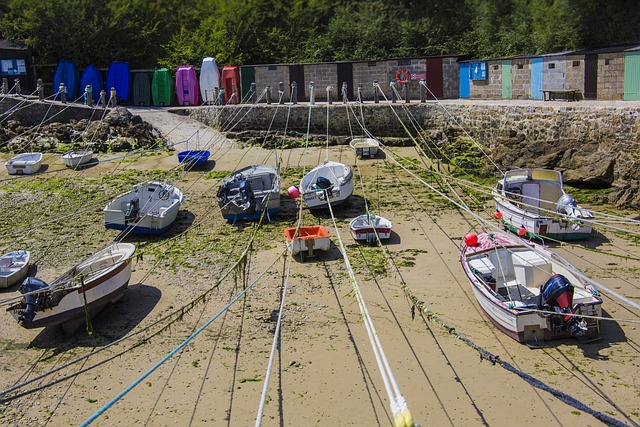UV-resistant marine ropes, particularly those made of polyester, are a superior choice for maritime applications due to their exceptional strength and durability. These synthetic fibers offer enhanced resistance to water absorption, rot, and UV degradation compared to natural fibers, ensuring they remain strong and functional over time in the challenging marine environment. The polyester boat rope's ability to withstand harsh conditions, including direct sunlight, salty air, and water, makes it an ideal selection for mooring, towing, and securing on boats, where consistent performance is vital. Its treatment prevents color fading and maintains aesthetic quality, while also preserving the rope's mechanical properties. By choosing UV-resistant marine ropes like polyester, boaters can ensure their vessels remain safe and operational, with equipment that resists environmental wear and tear, ultimately providing a reliable and long-lasting solution for maritime activities.
Navigating the vast and dynamic world of marine ropes, this article takes a comprehensive look at polyester rope’s robustness and resilience in maritime settings. Delving into its strength and durability, particularly against the relentless effects of UV radiation, we explore what makes UV-resistant marine rope an indispensable component for boat owners and seafarers alike. We examine how this material stands up to the rigorous demands of a harsh marine environment, ensuring safety and reliability on the open sea. Additionally, we provide insights into selecting the optimal type of polyester rope for your vessel’s specific needs, guaranteeing optimum performance under all conditions. Join us as we unravel the essential attributes that make UV-resistant marine rope a critical asset in maritime applications.
- Understanding Polyester Rope for Marine Use: The Strength and Durability of UV-Resistant Marine Rope
- Evaluating the Performance of Boat Rope in Harsh Marine Environments
- Selecting the Right Type of Marine Rope for Your Vessel's Needs
Understanding Polyester Rope for Marine Use: The Strength and Durability of UV-Resistant Marine Rope

Polyester rope, commonly used in marine applications, offers exceptional strength and durability that make it a preferred choice for various maritime tasks. Unlike natural fibers, polyester, known in the marine sector as boat rope, maintains its integrity under harsh conditions, resisting water absorption and rot that can weaken other materials over time. Its high tensile strength ensures that it can handle significant loads without breaking, which is critical for mooring, towing, and securing on board.
The robustness of polyester boat rope is further enhanced by its UV-resistant properties. Exposure to the sun’s ultraviolet rays is a leading cause of degradation in marine ropes, leading to color fading and loss of structural integrity. The UV-resistant nature of this synthetic fiber minimizes these effects, preserving both the appearance and functionality of the rope over extended periods in the marine environment. This resistance not only extends the lifespan of the rope but also maintains its performance characteristics, ensuring safety and reliability for seafarers and maritime operations. The choice of UV-resistant marine rope, therefore, is a strategic decision for those who demand consistent and dependable service from their boating equipment.
Evaluating the Performance of Boat Rope in Harsh Marine Environments

When assessing the performance of boat rope in the demanding conditions of marine environments, it is critical to consider the durability and resilience of the material against a myriad of factors. High-quality marine ropes, specifically those designed with UV-resistant properties, are formulated to endure the relentless exposure to the sun’s rays. The ultraviolet (UV) resistance ensures that the strength and flexibility of the rope remain intact over time, preventing degradation that can lead to fraying or breaking. This resistance is paramount for maintaining the safety and functionality of the boat, as well as the sailor’s confidence when navigating through various water bodies.
Moreover, marine ropes must be able to withstand not only UV radiation but also the salty, corrosive sea air. Saltwater can cause significant damage to materials that are not adequately treated or coated, leading to accelerated wear and potential failure under load. Polyester ropes, often preferred in marine applications due to their superior strength-to-diameter ratio and low stretch characteristics, are treated with specialized coatings that repel water and resist the abrasive effects of salt. These treatments allow the boat rope to maintain its integrity, ensuring long-lasting performance and reliability even in the harshest marine conditions.
Selecting the Right Type of Marine Rope for Your Vessel's Needs

When outfitting your vessel with the most suitable marine rope for your needs, it’s crucial to consider several factors that will ensure safety, durability, and functionality under maritime conditions. For instance, boat rope intended for use in marine environments must possess exceptional resistance to UV radiation due to the harsh exposure on open waters. UV-resistant marine ropes are specifically designed to withstand the intense sunlight that can degrade traditional fibers over time, leading to potential safety hazards and equipment failure.
Selecting a UV-resistant rope like polyester ensures longevity and reduces maintenance needs, as it resists fading, chalking, and loss of strength that are common in other materials such as nylon or cotton when exposed to the sun’s rays. The resistance of these ropes also protects against the effects of saltwater, which can corrode and weaken less durable fibers. Additionally, the flexibility and low stretch properties of polyester make it an ideal choice for applications where strength and consistent performance are paramount, such as in sails, mooring lines, or dock lines. When choosing the right type of marine rope, always prioritize materials that offer a blend of high tensile strength, resistance to environmental factors, and reliability to meet your vessel’s specific needs.
Polyester ropes, known for their UV-resistant properties and robustness, are a top choice for marine applications due to their exceptional performance in harsh conditions. This article has explored the critical aspects of selecting the right type of marine rope, evaluating their endurance in varied environments, and understanding the specific strengths of polyester rope for boats. Whether you’re an experienced mariner or a first-time boat owner, the insights provided ensure you can make informed decisions to meet your vessel’s needs effectively. With the right marine rope, your nautical endeavors can be both safe and secure, ready to withstand the test of time and tide on the open water.
